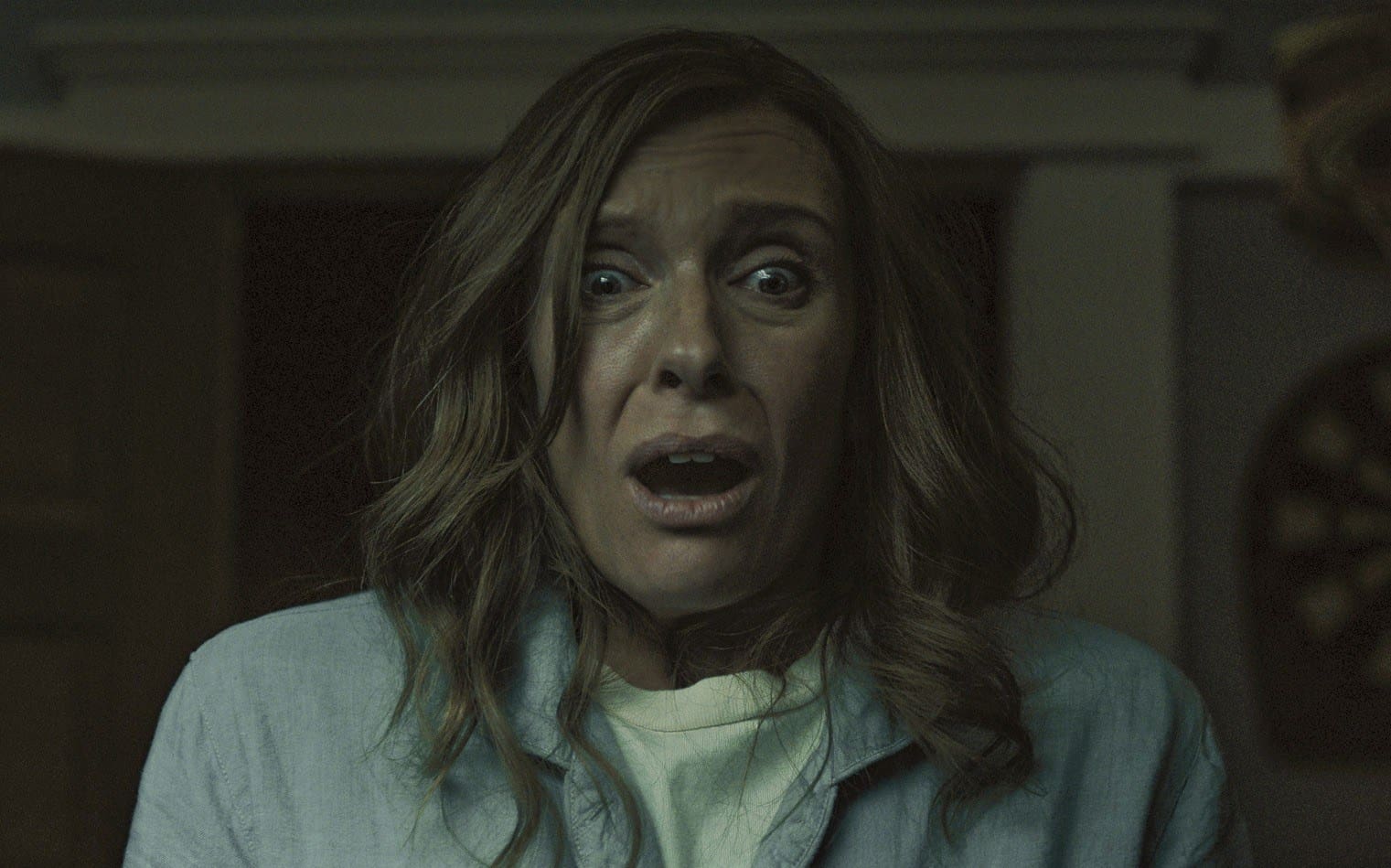
The wait before the first major scare in a horror film can make or break a movie. These scenes can either build suspense, dragging audience members closer to the edges of their seats, or it can completely remove them from the movie, out of sheer boredom or from disappointment in the film’s quality. But what Ari Aster does in his directorial debut, Hereditary, is a little different. This is a film that truly works on its own as a domestic drama — in fact, it’s almost better as a character study than it is a horror film. But, rest assured, when the scares come, they hit hard.
Aster gives Toni Collette the star showcase she hasn’t had in years as Annie, an artist specializing in miniature models who recently lost her estranged mother. She’s uncomfortable with the fact that she doesn’t feel anything about her mom’s passing, and her family feels similarly unmoved. Her husband (Gabriel Byrne) just goes about his day, hiding anything that might trouble his wife, while her son (Alex Wolff) just smokes weed and pursues girls, as per usual. Only daughter Charlie (Milly Shapiro) seems upset, as she becomes preoccupied with ideas of death and seems more withdrawn than usual. But when tragedy strikes, the family is suddenly forced to confront the underlying issues that they’ve ignored for years.
And then there’s that séance…
Critics have (favorably) compared Hereditary to The Exorcist and Rosemary’s Baby, and while it’s hard to talk about the film on that level in terms of quality, bundling them together does feel appropriate on the basis of content. All three films specialize in making the scares feel believable, as if they could happen in the every day life of an audience member.
Hereditary feels like a play about an uncomfortably realistic, dysfunctional family, so much so that you forget you’re watching a horror film and become invested in their relationships. But, when the scares start coming, they pop up so naturally that they sting all the more. A climactic séance scene, where the family drama and horror film within are permanently tied together, is almost traumatic to watch, as it feels both incredibly suspenseful and genuinely disturbing. Watching this family fight each other, and then fight against supernatural forces, becomes a truly exhausting experience, which speaks to Aster’s ability as a filmmaker. So, while it’s hard to say that Hereditary has the stamina to run amongst some of the greatest horror films of all time, Aster tries his damned hardest to get it to that level.
Part of the reason he stumbles, however, is the film’s totally misguided ending. For much of Hereditary’s runtime, the film avoids explicitly answering questions, but gives audiences enough information to help them connect the dots on their own. And, more often than not, the answers an audience member can come up with would be infinitely more disturbing than what a filmmaker can show.
But, after a chilling sequence with some incredibly frightening imagery, Aster makes the odd decision to wrap everything up for his viewers, via a cheap looking epilogue that explains everything with an awkward voiceover. Virtually none of it works, and the images put on screen seem so silly and ridiculous, especially when paired with the over-the-top explanation, that it pulls viewers back into their comfort zones and makes them forget how scary the last two hours of their lives were. Had the film been trimmed by just five minutes, Hereditary would have been a far stronger film.
But, even with a weak ending, the film’s stars deserve nothing but perfect scores. Toni Collette has, frankly, never been better, delivering a performance that’s wildly unhinged but altogether believable. Her scream-induced facial distortions and wide-eyed terror is more disturbing than any of the film’s major scares, and her dialogue-driven fights with family members feel like they’re ripped out of an Edward Albee play from hell. She’s asked to do some pretty bizarre, gnarly things in this movie, and totally pulls off every one of them.
But also worthy of notice is Alex Wolff, who does what so few teen actors are capable of doing: reminding us that they are young kids. Whenever Wolff cries or expresses fear, it twists the knife in the audiences’ heart. He’s a kid in desperate need of someone to save him, and viewers will want to reach into the screen and hug him multiple times throughout the movie. Additionally, in one brilliant scene of physical acting, he twists his body so brutally that this critic had to avert his eyes. Finally, Anne Dowd steals her scenes as a mysterious friend of Annie’s.
Hereditary is a very scary film, while also succeeding as a drama and character study. Ari Aster emerges here as a director worth watching, as his skills with blending genres are so strong in his first film that whatever he’ll be able to churn out in the future as he hones his craft should be truly great. But let’s all hope he keeps excessive exposition out of his sophomore feature, as, unfortunately, one of the most memorable moments from Hereditary is the disappointing finale.
Rating: 7/10

